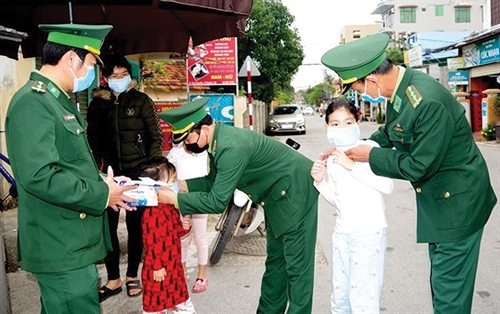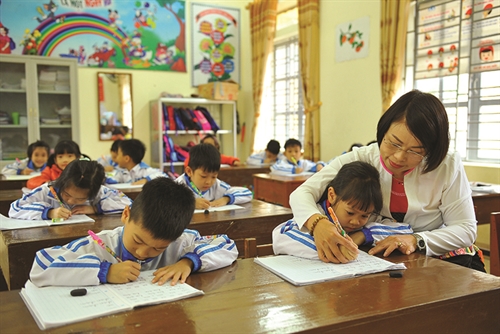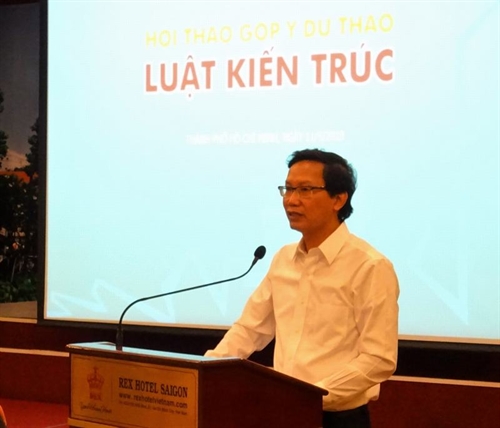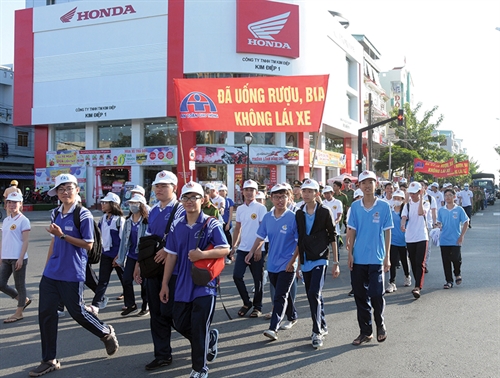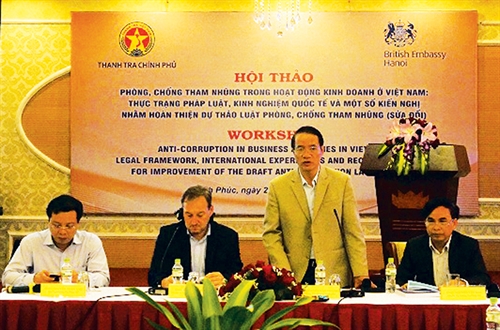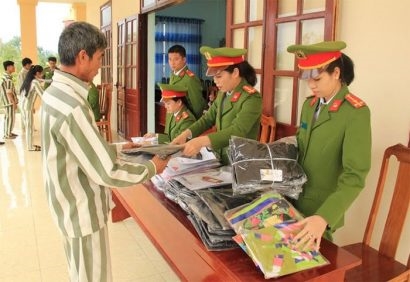From July 1 this year, the Law on Libraries (the Law) will supersede the 2000 Ordinance on Libraries (the Ordinance). Consisting of six chapters with 52 articles, the Law provides the establishment and operation of libraries and state management of libraries. It also defines the rights, obligations and responsibilities of agencies, organizations and individuals in library activities.
The Law, with a series of novel contents, institutionalizes provisions on human rights, and fundamental rights and obligations of citizens of the 2013 Constitution and provides a legal basis to develop libraries nationwide as well as the reading culture of Vietnamese people.
Diversifying types of libraries
Under Article 9 of the Law, there are eight types of libraries, including (i) the National Library of Vietnam; (ii) public libraries; (iii) specialized libraries; (iv) libraries of people’s armed forces; (v) libraries of higher education institutions; (vi) libraries of early childhood education institutions, general education institutions, vocational education institutions and other education institutions; (vii) community libraries and private libraries providing public library services; and (viii) libraries of foreign organizations and individuals providing services to Vietnamese people.
Libraries will be organized after the two models below:
- State-funded library, in which the State invests funds, ensures its operation conditions, and acts as the owner’s representative, and which is organized after the model of public non-business unit or a model suitable to the type of its managing agency or organization; and,
- Non-state library, in which a Vietnamese or foreign organization(s) or individual(s) or a residential community invest(s) funds and ensures its operation conditions, and which is organized after the model of enterprise or non-public non-business organization or another model. This model of library is not provided in the Ordinance.
The Law devotes Article 17 to prescribing libraries of foreign organizations and individuals providing services to Vietnamese people. These are libraries having general or specialized information resources which are established in Vietnam and operate with funds provided by foreign organizations or individuals in accordance with the Law and other relevant laws.
Like other types of libraries, libraries of foreign organizations and individuals providing services to Vietnamese people will perform the following functions and tasks: (i) To build, process, store, preserve, connect and develop information resources suitable to library users; (ii) To organize the common use of information resources, information products and library services; to propagate the wisdom and cultural values of the nation and mankind; to serve research, learning and entertainment needs; to contribute to the formation and development of knowledge, skills, qualities and competency of library users; (iii) To apply scientific and technological achievements to modernize libraries; and (iv) To develop reading culture and contribute to creating a lifelong learning environment for the People, building a learning society, improving people’s intellectual level, and developing all-sided Vietnamese people.
In addition, libraries of this type will organize library activities as notified to competent state agencies, and participate in the development of reading culture.
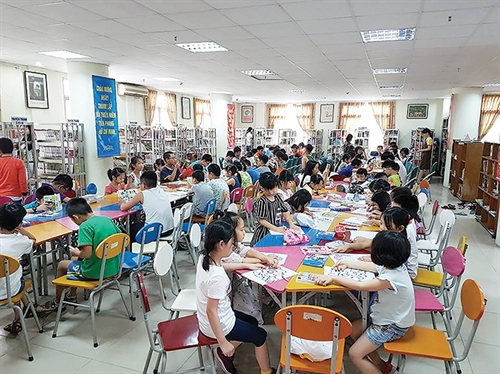 |
| Inside a reading room of the Hanoi library__Photo: Internet |
Conditions for establishment of libraries
A library may be established when the following conditions are fully met:
- Its operation objectives and target users have been identified;
- It has information resources suitable to its functions, tasks and target users;
- It has adequate physical foundations and equipment for library activities;
- It has staffs possessing professional qualifications suitable to library activities; and,
- Its at-law representative has full civil act capacity.
Under the Ordinance, Vietnamese organizations may establish libraries, whereas domestic organizations and individuals, overseas Vietnamese, and foreign organizations and individuals living and working in Vietnam may participate in activities organized by libraries.
Compared to the Ordinance, the Law empowers more subjects to establish libraries, including organizations, individuals and residential communities provided that they fully meet the above-mentioned conditions.
Particularly, the establishment of libraries after the model of enterprise must comply with the Law, the Enterprise Law and other relevant laws. Meanwhile, the establishment of libraries being non-business units must comply with the regulations on public non-business units.
Interlibrary collaboration
A noteworthy new point of the Law is the provision on interlibrary collaboration. This is the association and cooperation among libraries aiming to rationally and efficiently use information resources, library facilities, information resource processing results, library information products and library services. Interlibrary collaboration is a principle of library activities set out in the Law.
According to Article 29 of the Law, interlibrary collaboration covers: (i) Cooperation on the acquisition, purchase and collection of common-use information resources and on the formulation of union catalogues; (ii) Sharing and common use of information resources among libraries; sharing of results of processing of information resources and library information products; and (iii) Joint provision of library services to library users.
Interlibrary collaboration will be conducted on the basis of geographical areas; among groups of libraries having similar functions, tasks and service users; on the basis of fields and contents of information resources; or among libraries of different types.
Libraries prioritized for investment by the State will act as the core in building, sharing and exploiting common-use information resources among libraries. Information resources developed with state budget funds will be shared among libraries. Another mechanism for interlibrary collaboration is cooperation on the acquisition and purchase of the right to access and share foreign information resources and effective use of state and social funds.
Development of digital libraries
As per the Law, digital library is a library or a section of a library having information resources already processed and stored in digital formats for users to access and use electronically and online.
Article 31 of the Law states that development of digital libraries covers (1) building digital information resources on the basis of collecting digital documents and digitalizing library documents; (2) processing, storing and preserving digital information resources in accordance with standards and technical regulations on information technology and librarianship; (3) using advanced software in digital library administration and smart interface designs; ensuring openness and interlibrary collaboration in reference, exploitation and conversion of data among data storage systems; and supporting the grant of the right to access and exploit digital information resources to library users; and (4) granting the right to access information resources in digital and other forms.
Development of reading culture
This is a new provision of the Law.
One of the tasks of libraries defined in the Law is to develop reading culture and contribute to creating a lifelong learning environment for the People, building a learning society, improving people’s intellectual level, and developing all-sided Vietnamese people.
The development of reading culture will be carried out through:
- Organizing activities to form a reading habit in families, schools, agencies, and organizations nationwide;
- Providing guidance on reading and information resource-exploiting methods and skills for children at libraries of early childhood education institutions and libraries of general education institutions;
- Developing information search, exploitation and use skills, and expanding knowledge for library users; and,
- Promoting interlibrary collaboration between public libraries and other libraries in the same locality; accessing and exploiting information and knowledge from common-use digital libraries via electronic devices; and using the travelling library service and rotating information resources.-
